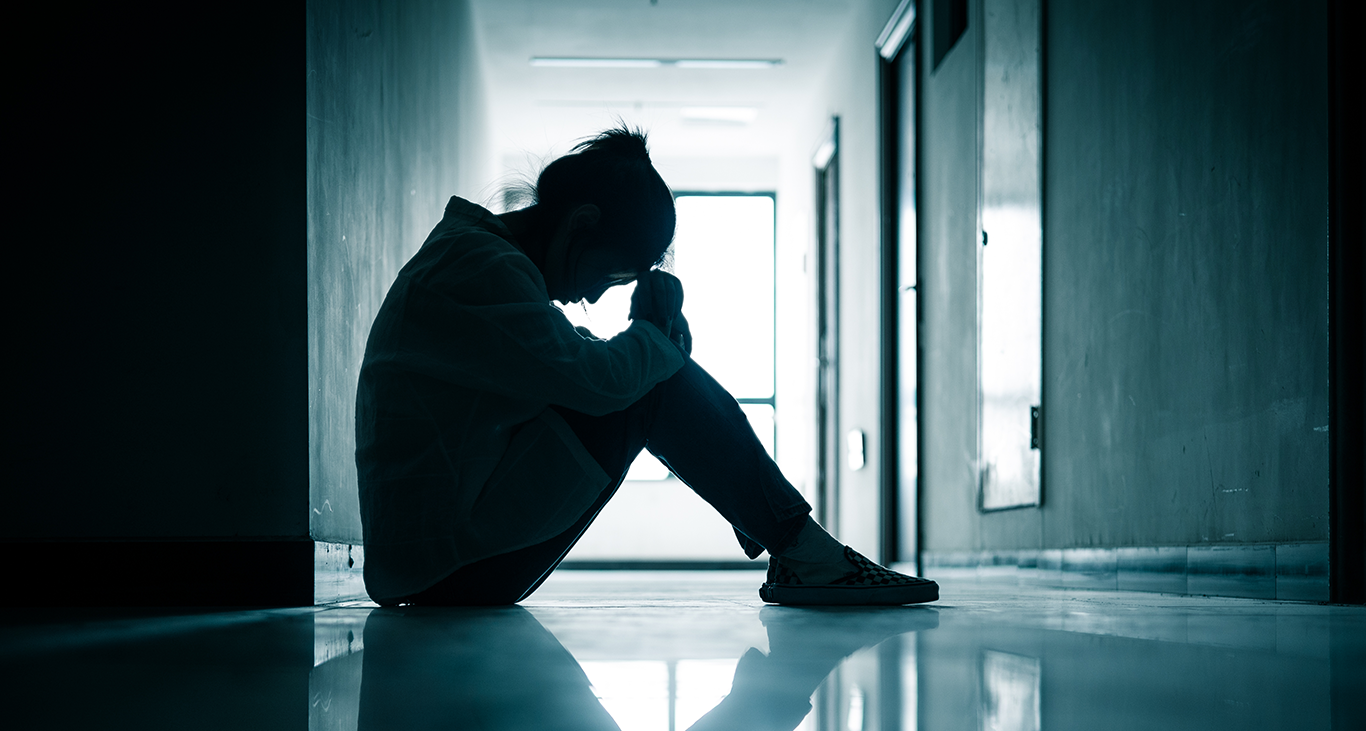Hitting Rock Bottom: What It Means and Where to Go from Here
Reading Time: 6 minutesHitting rock bottom is a term that refers to the lowest point of a person’s life. It’s traditionally used in the context of substance use disorder, to describe the moment when the disorder has caused an individual to lose everything that’s important to them. However, people with anxiety, depression, trauma, or other mental health issues can also hit rock bottom.
If you’re overcome with hopelessness and see no way out of your current situation, you’ve likely hit this devastating point. But the good news is that coming to the end of your rope is often a turning point that leads to rebuilding your life in a new way. From here, there’s no way to go but up. That’s why hitting rock bottom frequently marks the beginning of the recovery process.
Key Takeaways
- Hitting rock bottom is a point when your life has come undone and you’ve lost any faith that things can improve.
- Reaching this point can feel like being at the bottom of the ocean with no hope of rising to the surface.
- The end of a significant relationship, a drug overdose, a job loss, a severe injury, a life-threatening diagnosis, or overwhelming financial problems can cause people to hit rock bottom.
- Seeking out a mental health professional is one of the most important things to do if you feel as if there’s nowhere to turn.
What Does Hitting Rock Bottom Feel Like?
Hitting rock bottom feels like falling into a dark pit of despair. You can’t crawl out of it because nothing you try works anymore. Hopelessness engulfs you. You realize you can’t blame others for your circumstances anymore. You’ve lost faith that anything could possibly improve. Moving forward feels impossible.
People with substance use disorder often experience rock bottom, and people with long-term psychological stress or underlying mental health conditions can, too. Regardless of the impetus, rock bottom feelings include inescapable depression, all-encompassing misery, and a complete inability to cope with life.
When you’re at this point, everything feels like it’s crashing down around you. You may be overwhelmed by sadness, remorse, and shame. You may be drowning in regret or feel like you’re losing your mind. It’s possible to feel emotionally numb or overcome by panic attacks. You may explode in fits of uncontrollable anger. Rock bottom may feel like a full-on nervous breakdown that causes you to dissociate or have suicidal thoughts.
Signs You’ve Hit Rock Bottom
How do you know if you’ve hit rock bottom? Every person’s lowest point is different. But some of the experiences that can send people to an all-time low are:
- Getting expelled from or flunking out of school
- Being fired or losing a business
- Insurmountable financial problems
- Becoming homeless
- An injury that causes severe disability
- Failed marriage or the end of a significant romantic relationship
- Experiencing domestic abuse that leads to hospitalization
- Legal problems or incarceration
- Drug overdose
- Serious physical health crisis
- Crippling anxiety or depression
Questions?
All calls are always confidential.
The Emotional Rock Bottom with Depression and Trauma
In addition to substance use disorder, untreated mental illnesses like depression and PTSD are one of the main reasons people reach an emotional rock bottom. When mental health disorders aren’t addressed, people are at risk of an emotional breakdown. They’re also at risk of damaging or destroying their jobs, relationships, and physical health. Moreover, reaching rock bottom can exacerbate mental health issues and also trigger new ones. And at their worst, rock bottom feelings can lead to suicide attempts.
Young adults are especially vulnerable to mental health–related crises and low points. In fact, a 2023 study found that a staggering 50 percent of adults ages 18 to 34 reported having a mental illness diagnosis. In addition, one survey noted that the rates of serious mental illness were highest among adults between the ages of 18 and 25. About 1 in 10 young adults reported a serious mental illness. (Serious mental illness is a mental, behavioral, or emotional disorder resulting in serious functional impairment, which substantially interferes with major life activities.) Unfortunately, nearly half of Americans don’t seek help for mental health issues, according to the Mental Health Million Project.
Know the Facts
58% of young adults say their stress levels are completely overwhelming.
What to Do When You’ve Hit Rock Bottom
Even though it may feel as if life will never be good again, it’s still possible to face the pain and turn your life around. Because rock bottom looks different for different people, the ways you can move forward look different, too.
Practice Self-Compassion
The emotional pain of rock bottom is devastating. And the sense of shame and self-judgment makes the emotions even more intense. To see the light at the end of the tunnel, practice self-compassion. Instead of admonishing yourself for your emotions, try to accept your thoughts and feelings. Moreover, avoid labeling them as “right” or “wrong.” Bring non-judgmental self-awareness to this painful low point in your life. Remember, everyone goes through difficult times. Remind yourself that it’s okay to be vulnerable and imperfect. When you practice self-compassion, it’s easier to regulate your emotions and take the next step forward.
Take a Time Out
The weight of hitting rock bottom can be so paralyzing that it’s nearly impossible to complete the simplest tasks. When your gas tank is on empty, trying to push through daily tasks can actually make things worse. To honor your needs, consider requesting a mental health leave of absence from work or college. Stepping away for a period of time can help you focus on what you need to do next to recover from hitting rock bottom.
Connect
It’s common for people who’ve reached rock bottom to feel a profound sense of aloneness. You might feel as if no one in the world can possibly understand what you’re going through. Despite this, resist the urge to isolate. Surrounding yourself with caring friends and family can help you get back on your feet more quickly. Authentic connections with positive and supportive people remind you of the good in your life. And they also remind you of the good in yourself. With the love and encouragement of others, you can reduce what’s known as hope fatigue. Then you can start taking healthy steps toward letting go of the past and building a brighter future.


Engage in Self-Care
Prioritizing your physical health goes a long way towards improving your mental and emotional health. Do your best to get adequate sleep, eat nutritious food, and incorporate some form of movement or exercise into your day. Pausing to do some deep breathing or meditation for just a few moments can make a big impact. These simple self-care strategies can improve your mood and energy.
Build Resilience
Bouncing back from a rock bottom low point requires resilience. This doesn’t mean denying how you feel or what’s happened. But it does require shifting your focus to the good things in your life. One way to do this is to remember and celebrate your natural gifts and talents. By identifying your strengths, you can more easily draw on them when you’re faced with challenges.
Take Back Your Power
When you’re at rock bottom, it’s easy to feel like life is happening to you. When you adopt this stance, though, you deny your power. On the other hand, when you take full responsibility for your life, the power to make change rests in your hands. You realize you can make decisions about what you want and need. There’s freedom in taking control and deciding to take steps toward your goals. Over time, you’ll begin to recognize that you have more options than you might have imagined.
Seek Professional Help
Overcoming a crisis requires assistance. There’s nothing weak about asking for help. On the contrary, it’s wise to acquire the right support when you’re overcome by fear and distress. If you don’t have a therapist, consider finding one. Having a well-trained, objective person to discuss your struggles with can be a turning point. A mental health counselor or therapist can help you reflect on your past and your patterns in a way you might never be able to do on your own or with a good friend or family member. They can also offer tools and strategies to help you reframe destructive thinking, adopt healthier behaviors, find hope, and reclaim your life.
How to Find Young Adult Treatment When You’ve Hit Rock Bottom
At Newport Institute, we offer an integrated and evidence-based approach to helping young adults in crisis. In our residential treatment programs, young people receive an individualized treatment plan that can include individual therapy, group therapy, and family therapy. We offer a wide range of clinical and experiential modalities to help clients heal from past trauma underlying mental health conditions.
Our treatment centers throughout the United States are located in serene environments that help young people achieve long-term healing and recovery from mental health and co-occurring disorders like anxiety, depression, PTSD, eating disorders, and substance use disorder.
Contact us today for a free assessment and insurance verification.
Frequently Asked Questions
What does it mean to hit rock bottom?
What are rock bottom experiences?
How do you know if you’ve hit rock bottom?
What is an emotional rock bottom?
What are the signs that someone is struggling emotionally?

